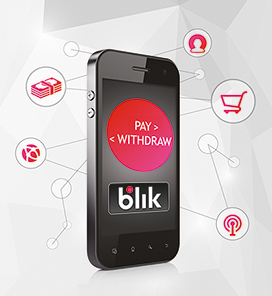PKO Bank Polski is the largest Polish bank in terms of assets, equity and the number of its customers, which exceeds 10 million. Over the past 10 years, the bank’s Group has mostly been growing organically, by making selective acquisitions in different segments of the financial market. This has resulted in a doubling of the bank’s balance sheet total, which currently exceeds PLN329 billion, and is almost one-third greater than the assets of the next-largest bank in Poland.
Today’s success is the result of implementing a well-thought-out development strategy, focused on the client and increasingly using modern technologies. Innovation and digital transformation have already become part of the organisation’s DNA, contributing to improved efficiency and generating even more profits. Digital transformation has become the reality of the changes taking place inside the bank, as well as in its relations with clients. Although the bank’s tradition is a hundred years old, its pace of development can impress many a Fintech.
Mobile banking
The Polish banks of today are in the European vanguard in terms of mobile payments, and PKO Bank Polski stands at their head. Its IKO mobile application, launched in the spring of 2013, quickly became the most popular of its kind in Poland, giving the bank a 25 per cent share in the country’s mobile banking market. At present, the bank has over 3 million active app users. The beneficiaries of the solution are the bank’s customers, who log in to the bank from their smartphones more often than via a website, and have replaced visits to traditional branches by also logging in to the bank with their smartphone. This is attributable to the app’s continuously expanding functions and simple and intuitive operation. These advantages are appreciated by large numbers of customers who – for the second year in a row – have judged IKO the best banking application in the world in the international ranking of Retail Banker International. IKO also gave rise to unprecedented cooperation among Poland’s largest banks, which jointly established the Polish Payment Standard, the operator of the BLIK mobile payment system.
“PKO Bank Polski is becoming a technology company with a banking license,” says Zbigniew Jagiello, president of the bank’s management board, and adds that “it is natural that we also want to cooperate with technology giants such as Google, Microsoft, Amazon, Facebook, IBM and Apple. We observe the market and analyse available strategies for expanding our product base. We want PKO Bank Polski customers to always be able to use products that meet their needs. They will not then have to look for alternative solutions outside the bank.”
Fintech collaboration
To acquire the most valuable ideas emerging from outside the organisation and adapt them to its needs, the bank created an original platform to support innovation and cooperation with startups, called ‘Let’s Fintech with PKO Bank Polski’ as well as setting up a venture capital fund to invest in the most interesting and most promising financial start-ups. The bank did not have to wait long to see the effects of these activities. Last year, in cooperation with the National Clearing House and the Anglo-Polish company Coinfirm, the bank used blockchain technology for the digital dispatch of banking regulations to over 5 million customers, which is by far the largest mass application of this technology in European banking.
Cloud advantages
PKO Bank Polski’s digital appetite does not end with purely financial services. Together with the Polish Development Fund, it is building the ‘Polish Domestic Cloud’. In cooperation with external technological partners, this offers data storage and processing services as well as cyber security and transformation services. The bank is kick starting a completely new stage in the digital development of Polish businesses at which the scheme is aimed. By using domestic cloud services, clients are assured that the migration of business to the cloud will be in line with the requirements of local market regulators. Cloud services will be implemented within Polish jurisdictions, considering the requirements of individual sectors of the economy. This is the first step to the creation of an ecosystem of services going far beyond traditional banking, and the bank’s further development as a technology firm which, while gaining new experiences and market segments, is still fully utilising its banking license. PKO BP is also, or above all, a Polish flagship financial institution that has ambitions to compete in the European league.
*Following the initiative of PKO Bank Polski, Polish banks have created a domestic BLIK mobile payment standard. BLIK payments are made using a six-digit code generated by the banks’ mobile applications. Each bank has its own mobile app, but they share a common denominator – BLIK codes generated in the same format for payments in terminals, online purchases and transfers to phone numbers.













